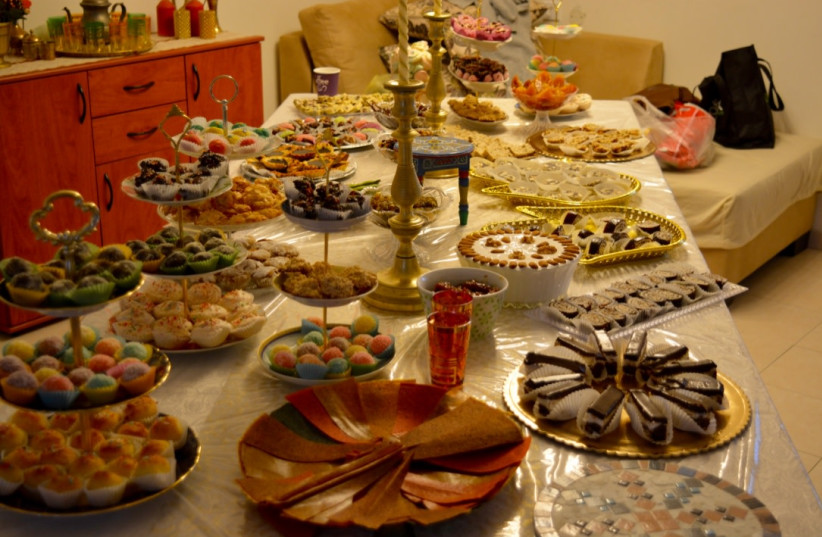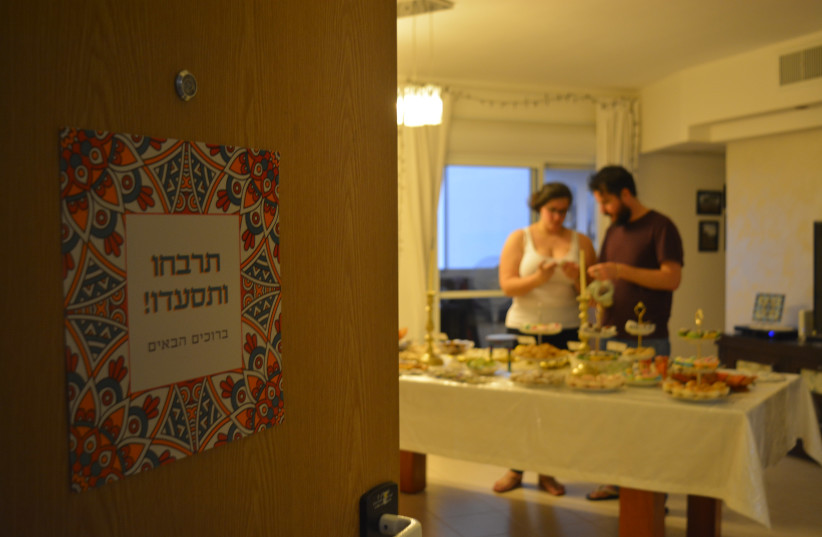A group of young Jews with Moroccan heritage are trying to bring the Mimouna holiday back to life across the globe with a variety of activities, events and publicity.
Mimouna is a traditional Maghrebi Jewish celebration dinner that is affiliated with Moroccan Judaism. It usually takes place where Jews of Maghrebi heritage live. Mimouna takes place annually the day after Passover ends, when Jewish law permits the return to eating hametz (leavened bread, etc.), which was forbidden throughout the holiday.
The initiative is called Global Mimouna. One of its founders is Yona Abeddour, who immigrated to Israel from Morocco in 2016. Abeddour told The Jerusalem Post, “Mimouna continues to be a living story of how Jews and Muslims thrive and celebrate side by side in Morocco and other parts of North Africa. This historic legacy of friendship and cooperation lives on today and through Global Mimouna, which we intend to transmit around the world.”
Abeddour explained that the Global Mimouna initiative provides a large community with the tools and ingredients needed to organize and host Mimouna celebrations in their own homes.
“Through our website [globalmimouna.org], we hope that we have taken the first step in making it easy, through sharing resources, recipes, music, history, etc.,” Abeddour explained. “The idea is to encourage Jews and non-Jews, Moroccans and non-Moroccans, Sephardi and Ashkenazi alike to host Mimouna and open their doors and hearts to neighbors of all faiths and backgrounds.”

The project began in 2019 as a vision of three Sephardim. Its founders, Sandra Yerushalmi, Shimon G. Levy and Abeddour wanted to share meaningful stories of celebration, coexistence and prosperity through Mimouna. They were inspired by other initiatives where stories and traditions are passed from one generation to the next.
“We felt compelled that the newer generation picks up the torch of this long-standing tradition,” Abeddour said.
This is the third consecutive year of the Global Mimouna project. Selected celebrations include a Mimouna celebration in Casablanca hosted by a Muslim student; a joint Iftar and Mimouna celebration in a Moroccan synagogue in the heart of Brussels; an interfaith Mimouna event in London; a Mimouna musical encounter in Jerusalem of Shahar Avakeshcha, a group that aims to preserve the poetry of Moroccan Jewry through learning and singing piyutim and bakashot (Liturgical poems); a festival of good neighbors celebrated in Washington, DC by Sephardic Heritage International DC; and a family Mimouna celebration hosted by the Arviv family in Ashkelon that will bring together Jews, Muslims and Christians in a family setting.

Asked if he has seen an increase of activities for Mimouna in recent years, Abeddour replied, “Mimouna, the Judeo-Moroccan holiday, is gaining so much ground in areas populated by Moroccan Jews and Muslims, especially in European and North American cities. Mimouna continues to be celebrated in Rabat, Paris, Brussels, London, Washington, DC, etc. where diplomats of both Morocco and Israel are invited to partake in this unique celebration.
“Two of the main reasons of this initiative is, first, to extend Mimouna beyond its primarily Israeli colloquial nature and second, to create a more in-depth and attuned understanding of this celebration, what it historically meant and how much there is to learn from Mimouna especially in turbulent times.”
Mimouna has been primarily associated with mufletot (Maghrebi Jewish pancakes), Moroccan friends, dancing and photo opportunities. Yet Abeddour and his friends intend to take this holiday a bit deeper.
“At times Mimouna has been used rather than showing the beautiful diverse nature of our community and country, to amplify a tear in society rather than a unifying mechanism,” Abeddour said. “We intend to bring it back to its core and empower people around the world to put their respective twist to this age-old custom.”
